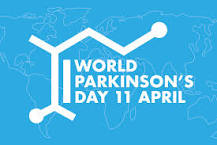By Vannah Rose Roberto, Senior Advisor at Concierge Care Advisors
Understanding Parkinson’s Disease: Supporting Seniors in Every Step
April brings the promise of spring, a season of renewal and growth, as well as important healthcare observances. Among these, World Parkinson’s Disease Day on April 11th shines a spotlight on Parkinson’s Disease (PD), a condition that affects millions and is currently the 14th leading cause of death in the United States, according to the CDC.
Parkinson’s Disease presents unique challenges for seniors and their families, often requiring tailored support and care strategies to navigate daily life effectively.
What is Parkinson’s Disease?
Parkinson’s Disease is a progressive neurological disorder that primarily affects movement. According to Parkinson’s.org, motor symptoms like tremors and stiffness only become evident after significant neuron loss in the brain’s substantia nigra. Additionally, the presence of Lewy bodies (abnormal alpha-synuclein protein accumulations) contributes to the disease’s progression and complexity.
As symptoms emerge and progress, seniors with PD often experience challenges with daily activities, especially if they also face other conditions like dementia or Alzheimer’s.
The Importance of Early Intervention
Early intervention is key to managing Parkinson’s Disease effectively. While there is no cure, patients can benefit significantly from a combination of treatments, including:
- Physical Therapy: Helps improve mobility, balance, and strength.
- Occupational Therapy: Assists with adapting to daily tasks and maintaining independence.
- Medications: Relieve symptoms and improve quality of life.
- Speech Therapy: Addresses speech and swallowing difficulties common in later stages.
When Additional Support Becomes Necessary
As Parkinson’s Disease progresses, families may need to consider additional care options to ensure the safety and well-being of their loved one. These may include:
- In-Home Care: Professional caregivers can assist with daily activities and provide companionship.
- Senior Living Communities: Specialized communities with memory care and physical therapy programs can support seniors with PD.
- Medical Support: Consulting neurologists and other specialists to fine-tune treatment plans.
At Concierge Care Advisors (CCA), we help families navigate these decisions with personalized guidance and expertise.
How CCA Can Help
Supporting a loved one with Parkinson’s Disease can feel overwhelming, but you don’t have to face it alone. Our team at Concierge Care Advisors offers tools and resources to guide you through the next steps, including:
- Assessing care needs and options.
- Connecting you with senior living communities and in-home care providers that specialize in Parkinson’s care.
- Helping you make informed decisions that prioritize your loved one’s quality of life.
Parkinson’s Disease may present complex challenges, but with the right support and care, seniors can continue to live fulfilling lives. This April, as we recognize World Parkinson’s Disease Day, take the time to learn more about this condition and explore the options available for your loved one.
For more information on how Concierge Care Advisors can help, contact us today. Together, we can find the care solutions your family needs.

























